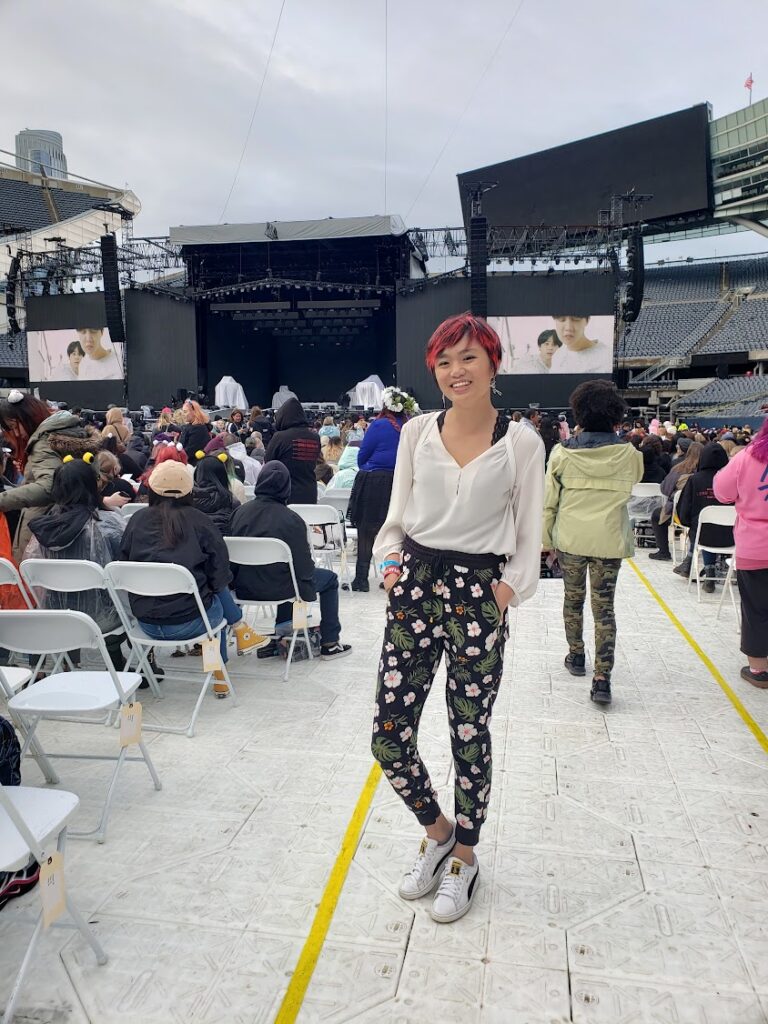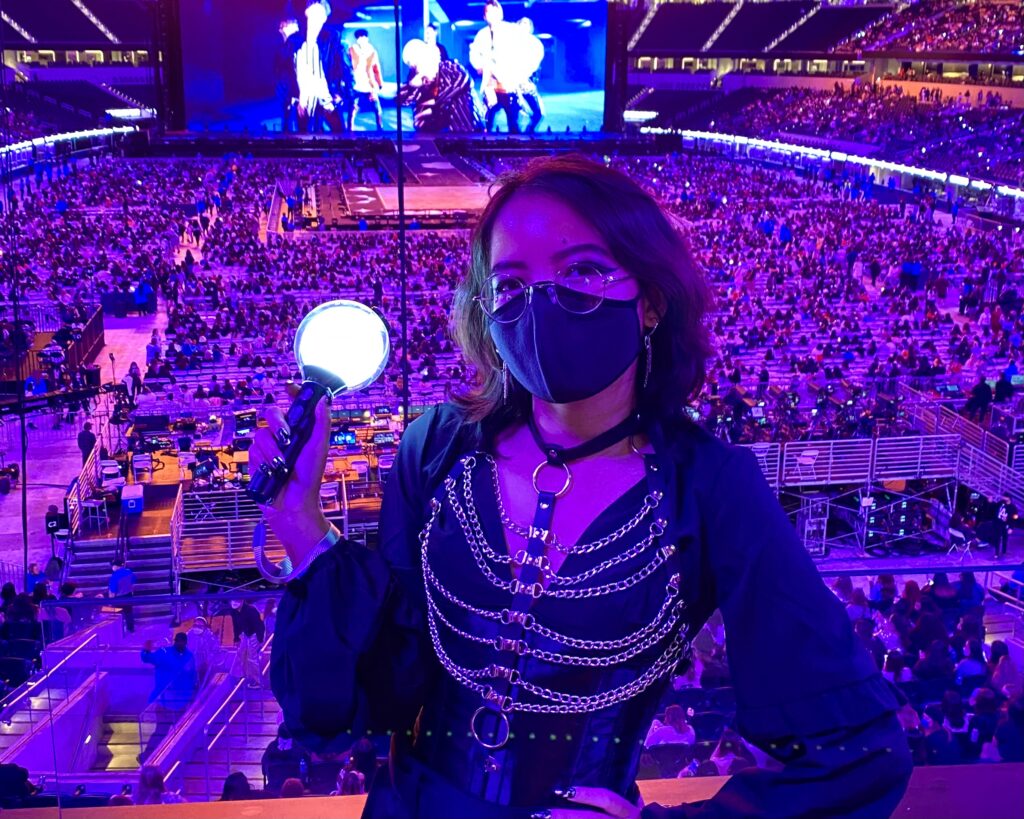K-pop group SEVENTEEN at their “Be The Sun” world tour
If you turn on one of today’s top-40 radio stations, you may hear “BTS” being said frequently – but it doesn’t mean “back to school.”
BTS, in the context of today’s pop culture, generally refers to K-pop group Bangtan Sonyeondan, who are also referred to as the Bangtan Boys.
But what is K-pop? And what about it has people of all generations so mesmerized?
K-pop, which is an abbreviation for Korean pop music, is a genre that has roots in the 1950s but has grown in popularity within the last two decades. According to The Los Angeles Film School, K-pop can’t really be traced back to one particular style or influence; instead, it draws from many sources, including R&B.
And K-pop doesn’t just involve members – or, as they’re known within the genre, “idols” – getting up on a stage and singing. The prospective stars go through years of auditions and training camps to hone their skills. Only after that are they able to begin practicing choreography and appearing on television shows.
A close friend, Manilyn Gumapas was, for a while, not interested in K-pop despite being musically inclined. However, when a friend was persistent about getting her to at least give it a try, she found herself immersed in everything the genre had to offer. She particularly fell in love with hearing the stories of the individuals in the limelight. In short, it “changed her life.”

During her interview with The Clarion, Gumapas wanted to make one thing clear: “K-pop fandoms are not cults.”
She spoke about the frequent discourse around female versus male fans and how K-pop is often dismissed as a legitimate interest because it is female-dominated.
Gumapas, although still very much a fan, now looks at K-pop through an academic lens. For example, she examines how fans are able to come together to show support not only for the artists they love, but also for the causes they care about. For example, upon the death of a member of the group SHINee, they shared and comforted each other in grief. This, she said, is a way in which fans develop relationships with each other – as well as the artists – and foster a sense of community across geographical and cultural boundaries.
Jas De Guzman, another friend and K-pop fan, through their own efforts within the K-pop space, also shows that fans go far beyond online interactions. For De Guzman, Korean pop music is a “lucrative hobby” that has “opened doors” for them.
De Guzman has enjoyed K-pop and similar genres since 2009, with that type of music being popular in the Philippines around that time. They grew up with a passion for dance, and seeing the stars engage in that only made their interest blossom. They especially liked seeing the representation that came from girl groups.

In previous years, De Guzman worked with entertainment companies and venues – such as Live Nation Korea and United Center – to coordinate the creation, distribution, and display of banners for K-pop groups.
Additionally, they have attended many fan-organized events – often known as “cup sleeves” – in the Chicago area. According to De Guzman, these events are the most popular in Asia and are used to celebrate occasions such as idols’ birthdays. They started gaining traction on the west coast in the 2000s and into the 2010s. De Guzman says that they “feel old” seeing K-pop grow to what it is now.
For these two fans, and many others across the world, K-pop is about much more than the outfits or the stadium concerts. K-pop is about fostering community. And it seems that both Gumapas and De Guzman have been able to find their places within it.
Carly Webster, Staff Writer and Business Manager


